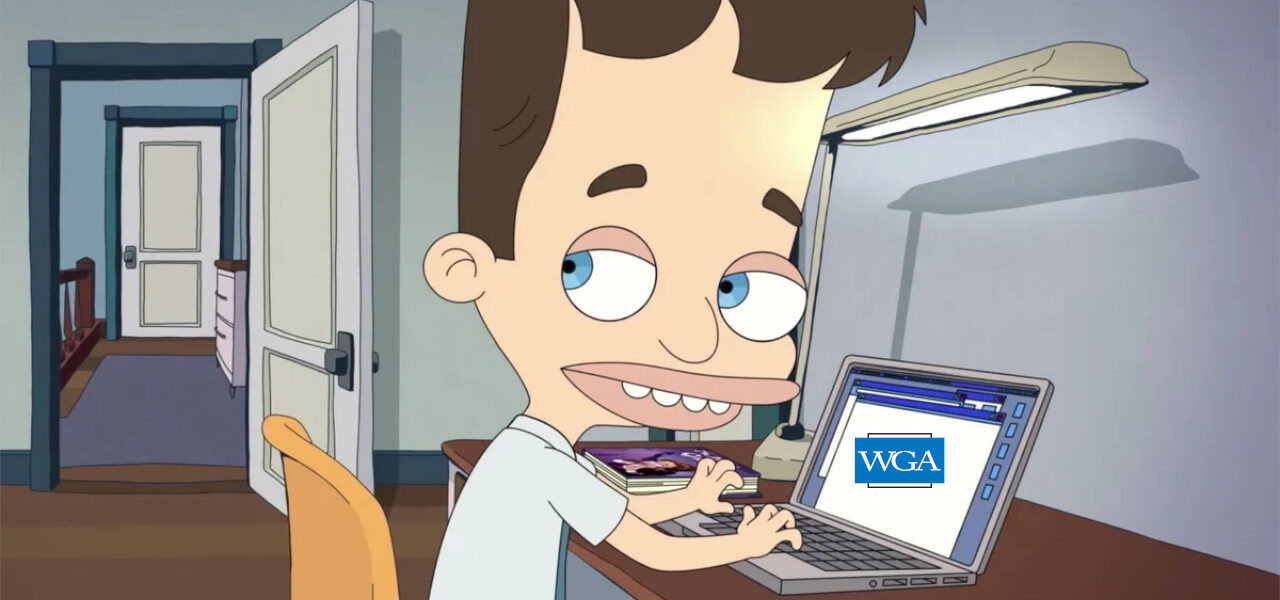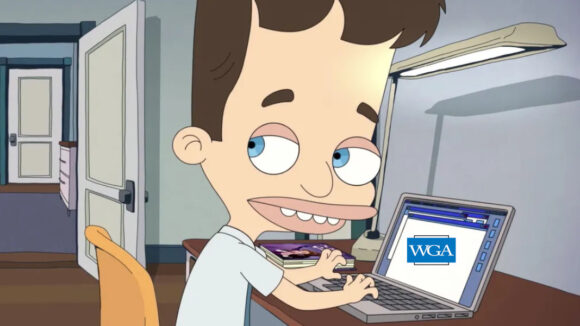

More Than 1,500 Sign Pledge To Fight For WGA Coverage Of Animation Writers
More than 1,500 Writers Guild of America (WGA) West members have signed a pledge committing to fight for WGA coverage for animation writers going forward. “We want to be treated equal to live-action writers, not less than,” reads the document.
Among the signatories are major figures including Amy Poehler (Duncanville), Nick Kroll (Big Mouth), Seth MacFarlane (Family Guy), Mike Schur (Q Force), and Mindy Kaling (Velma).
WGA West is the dominant writers’ union in Hollywood, and its contracts cover some high-profile adult animated shows, including The Simpsons, Big Mouth, and Rick & Morty. Here is the full list: download PDF. But most of the animation industry is represented by The Animation Guild (I.A.T.S.E. Local 839), which covers writers, artists, and, increasingly, production workers. Animation writers can belong to both WGA West and The Animation Guild, and many do. But this overlap has caused friction between the unions in the past.
As a means of expanding coverage to all animation writers, WGA West has established the Animation Writers Organizing Committee, co-chaired by Mike Scully (The Simpsons) and former WGA presidents Patric Varrone (Futurama) and David A. Goodman (Family Guy). According to the pledge, the committee will work with any animation writer looking to get a guild contract for their project or writing staff.
After the pledge went public, many writers expressed their support for the pledge on social media. Koala Man creator/showrunner Dan Hernandez said:
Proud to lend my name to this pledge. Animation writers deserve WGA protections! We are extremely proud that Koala Man is a WGA show. Sometimes the fight is easy, sometimes the fight is hard, but it is ALWAYS worth having.
Star Trek: Prodigy writers Dan and Kevin Hageman tweeted:
We write both live-action and animation. There is no difference in the work we do, only in how we’re protected.
Last week, Emmy-nominated producer and writer Raphael Bob-Waksberg (BoJack Horseman, Undone) revitalized the conversation around animation writer coverage when he took to Twitter to campaign for a soon-to-be vacant position on the WGA board.
“The main reason I’m running is because I want to fight for equal pay for animation writers,” he said near the beginning of the thread.
In the series of tweets, he pointed out that animation workers were the first to get back to work after the Covid-19 pandemic hit. That fact is widely accepted but remains a sore spot for many after the WGA themselves took the misguided step of suggesting to live-action writers that they shift to animation to make ends meet during lockdown.
The fact of the matter is that despite animation writers’ tireless efforts during the pandemic, most still struggle for the rights and protections provided to their live-action counterparts today.
One fundamental aspect of Bob-Waksberg’s campaign is ensuring that more or all animated projects be covered by the WGA. As stated earlier, many such projects already are, but there is also a common trend among studios to set up writing staffs under The Animation Guild, which doesn’t offer the same level of bargaining power as does the WGA.
“This is often done without input from the show’s creator or showrunner, or even against their firmly stated wishes,” Bob-Waksberg accused, using his own experience as anecdotal evidence. “I recently helped develop a new animated show but I couldn’t get the network to agree to WGA coverage. I went all the way up the flagpole, explaining why WGA coverage was a must, I flattered, I bargained, I cajoled, I threatened to walk; they still refused, and finally I walked.”
“I want to underline this point: The network would rather lose me as a producer (the producer with the most actual experience in animation) than pay the show’s writers a fair wage,” he added. “If I couldn’t get it done, what hope does a first-time showrunner have?”
On Tuesday, he reiterated his commitment to the cause as signatures continued to flow in for the new WGA pledge:
Proud to have signed the @WGAWest Animation Pledge and proud that its signers have more than doubled since it was first announced yesterday. Animation is a booming, lucrative industry. The studios need to pay writers what they’re worth.https://t.co/0NrvHJkkp1
— Raphael Bob-Waksberg (@RaphaelBW) August 9, 2022
Read the WGA’s entire email to members here:
Dear Members,
Whether writing for live action or animation, WGA members deserve a WGA deal. Unlike live action, however, Guild coverage for animation is not guaranteed by the MBA, so writers must demand it. Over the years, writers have successfully fought for and won coverage for numerous animation projects.
Increasingly, however, some studios and production companies are insisting that WGA coverage is a “non-starter” – even for WGA members – and force them to work under another union’s contract, where they receive less money, inferior health and pension benefits, and no residuals. For writers who have previously worked on Guild-covered animated shows, this is an extreme rollback.
In response, the WGAW Board has created an Animation Writers Organizing Committee (AWOC), made up of established animation writers in screen, television, and streaming. The AWOC stands ready to work with any animation writer committed to getting a Guild contract for their project or writing staff.
To prove our commitment, we, along with over 400 other WGA screenwriters, showrunners, and TV and streaming writers, have signed a pledge to fight for Guild coverage of our animated writing work. You can join us HERE.
Animation writers covered by a WGA contract receive WGA minimums, script fees, residuals, and coverage under the WGA health and pension plans, including paid parental leave.
You can contact WGAW Animation to learn more about how to get your project covered or get involved in the organizing campaign. Ultimately, it is up to all of us along with our reps and partners to insist on Guild coverage and refuse to accept a lesser deal.
In solidarity,
David A. Goodman, Co-chair
Mike Scully, Co-chair
Patric M. Verrone, Co-chair
WGAW Animation Writers Organizing Committee (AWOC)
Pictured at top: “Big Mouth”

.png)
